When I think back to my most memorable experiences with film directors, those were the ones that asked us to get involved with the creative process. I mean, most of the time directors tell us what they want from the shot, we do it as quickly as possible so they can move on to the next shot. That's fine, that's our role really, is to do what we are told to do. Fine no problem. Most of the time I found myself just playing myself, and imagining I was in various situations, so the acting part was fun. What's hard is getting hired, and convincing someone to take a risk on you.
I had the honor of working with Mel Brooks on one of his last films as a bum. (Okay, as a homeless person) He not only treated us all with respect and compassion, but he paid everyone in the cast double scale without even our agents asking for it. Trust me, that doesn't happen very much. Anyway, when I worked with him, he came up to me and said, "Do you have any input or creative ideas for this scene?" We all love to be involved with the creative process if we are allowed to. I offered up a few suggestions, we tried a few out and used them. What an honor it was to work with this man. I have the deepest amount of respect for Mel Brooks. Some of his work is classic to me.
The other director that really stands out in my mind, was Peter Weir. We are out there on the set, it's total chaos, and he says, "Do you have any ideas for this scene?" Again I got to be a real part of the creative process. Many of these film directors will just yell and bark at you because they are obviously under a lot of stress. So we keep our mouths shut, do our lines, and do what they want for the scene. The ones that involved me in the creativity, are the ones I have the fondest memories of working with. Peter Weir was cool like that.
When it comes to television, I worked for Jay Leno for 8 seasons. He has to be one of the hardest working men in show business. On the days that I had an 8 AM call time, his car would already be parked outside the studio, (He drove what seemed like a different vehicle every day, and all of them valuable collectors cars. From Plymouth GTX convertibles to Bentley's. The list was endless.)
Anyway, he would stay there all day in his blue jeans, working on the comedy bits, taping segments, production, guests, rehearsals, etc. then the show would tape live for 2 hours at 5PM. A few more hours of post production, and then I guess he would try and wind down, go home, and come back the next day and do it all over again. This happened every day I worked there for the 8 years I was on the show. This man worked about as hard as I have ever seen anyone work in show business.
Again he was one of these guys that asked us for our input on the comedy segments. Ideas, suggestions, etc. We could even suggest ideas for future comedy bits with the writers. I loved working on that show, and have a lot of respect for the entire staff of The Tonight Show With Jay Leno.
I landed that gig, by just doing a mass mail out of head shots and resumes to all the AFTRA TV shows. Scott the talent coordinator just called me up one day, and said, "Would you mind being slimed by a Thanksgiving turkey spam float?" Sure no problem. That's how I got on the show, no agent was even involved. So you can get work on your own. Just sitting around waiting for your agent to call is not enough.
Times have changed a lot since the 80's. It was hard to get in to the union, you had to be hired for a speaking role first. So it was a catch 22. Now all you need is 3 union extra jobs and the fee to join. (Just don't do it too soon before you build up enough credits.) The other thing was that it was hard to figure out how to break in to the biz. All we could do was check out books in the library on the subject, do extra jobs, talk to other actors, do work for free to get tape for your demo reel, and try to build up that resume. That part hasn't changed very much, you still have to work your way up, and pay your dues. You do need to do some homework, and learn all about the biz that you can.
Now you can find lists of union and non-union agents and casting directors on the web, information on what you need to break in, and all sorts of other resources to help you. There is incredible news groups on acting sites like Google groups, Usenet, Ning, and Yahoo groups. You can ask answers to questions and get a nice average of responses to help make up your mind on something. With today's technology with a little work, you can whip up a good website, produce your own demo reel, a voice over tape, get a friend who is a professional photographer and do some digital head shots all on your own. You can crop and tweak them however you need to. You can even market yourself a lot easier now on the web with social networking sites like MySpace, Facebook, Twitter, MeetUp, etc. Lots of actors have them now, plus many have acting community groups on there.
I see a lot of online casting sites out there, and some that haven't been updated in 5 years. hmmm. And some others for a nominal fee claim they will get you in front of the entire world! And little Billy can be discovered! (Don't get me started on the Hollywood Moms thing. Some of those kids I'd see wanted to be there at auditions, and a lot of them really didn't. It bothered me how some of the parents would force their kids into this industry. Constant rejection is hard enough on an adult.)
The day before back in the day, we had to hire professional photographers, and to get 3 rolls of film and the negatives was a bargain at $300. Then you had to get 100 - 500 prints made. All of that stuff cost us a lot. I don't think the online casting has truly arrived yet, but it will soon. Most of it is still done the old fashioned way, with 8x10 head shots submitted by agents to casting directors. It can't hurt though to submit for online castings on your own, especially if you are trying to build up credits. Because you can't take on the big time in NYC or LA, unless you have the tools to compete with the very best in the world. To be honest, I only ever really used my demo reel to get an agent with. (But you do need that!) Only 2 directors in 14 years ever asked me to see it. They still want you to audition, most of them don't have the time to look at actor demo reels.
The problem getting agents or even auditions at the non-union level, is there is some scammers out there, who just want to get a fee for "registering" you as a client. And build up a big list of clients. Many of the online casting sites are mostly questionable at best to me. I think they are the future though. And even if you are starting out, and can only maybe get a non-union agent, be wary of anyone that asks you to use their photographer, or charges a registration fee of over $45. Many of them are legit, but some made a living by just registering as many clients as they could. $45 was my limit when I started out. (I'm sure it's gone up like everything else!)
There's even some agents that will recommend that you take acting classes with a particular acting coach. You might want to think twice about that agent. Heck these days, you don't have to rely on guess work, or the opinion of one actor, on a good acting teacher, you can Google them up see what's up. Search your area and the words "acting" and " teacher" and see what is around you. Talk to as many actors in your area as you can find. Lastly, I never took a class where the teacher wouldn't let me audit a class first to see if it was right for me. If you can't audit a class first, something's wrong. If you are starting out, or even experienced, you need to be constantly working your instrument. I did community theatre when I couldn't afford it just to stay sharp. I still believe the best way to learn, is to do. Get as much live improvisation experience as possible.
Try to find agents that represent union, and non union talent and register with them. Try to get local commercials, industrial films, print work, whatever you can. These places that claim to offer you the chance to get discovered, and seen by some major show or casting person? In my opinion, there is no real shortcuts like that. Wait until you see the fee for that service.
Im my opinion, you shouldn't have to pay at all, or very little to get a non-union agent, or it's time to move on to the next one. Figure 10-15% commission on a booking. 10% if it's union. They make money if you book jobs. Put your money into good head shots, and building up credits for your resume. That is your business card, and you need to market yourself like any other product. Local theatre, whatever you can find that you can get experience or videotape on. I did a lot of jobs for free to get credits. That's part of what you have to do. You can't pay your way into a job, that's unrealistic. You have to work your way up the same way everyone else does. You don't need to pay a lot to play.
Try to figure it like this, the agent will get you 10% of the auditions, so you need to go out and get the other 90% on your own. Now there is trade papers, production sheets, and numerous free online sites like Craig's List that post many auditions for acting jobs. Just be wary of any that want a fee up front. Do some research about breaking in to the biz online. Buy a book or two and have a good understanding what you are getting into. Plus you need to "act" like you know what's up by talking the talk. Think about integrating any of your other skills into acting, as well as on their own. Can you do voice overs, are you a singer, a writer, play an instrument, speak different languages, stand up comedy, public speaking, an entertainer? Any unusual talents can help you to get by, as well as look good on your resume, and even get you hired. I put horseback riding on my resume as an afterthought, and it led to 2 very nice bookings.
A little about print or modeling work.
I did quite a bit of modeling, or character print work strange as it may seem. You have to be very careful with the contracts you sign. This stuff is almost always non-union so they can do what ever they like on contracts with you. I learned the hard way to carefully read the model release form I sign before a gig.
My advice, or opinion is, when you see the release form, you will likely see some words that need to be changed. For example, “Your image can be used for any purpose and through any media what so ever throughout the universe”. LoL. Look it over and be careful not to sign it without marking those words out. Be sure to write exactly what your agent said the ad will be used for. If it’s newspaper only, magazine only, brochure, whatever. Watch for the maximum period of use as well. Then you can initial it, and sign it at the bottom. You have to be careful, and protect yourself, otherwise you might find yourself on a billboard with no pay for it.
It’s hard to remember all the time, because you are tired and pumped up before, as well as after a gig.
Sometimes we tend to forget the business side of this industry. I have friends who have lost thousands of dollars because they did not make the right changes to a model release form. I did it myself a few times, before I wised up. I’m hoping you will learn from the things I did wrong early on. The modeling field can be very vague regarding pay and contracts. The talent is the first place they look to cut costs. The norm was 20% commission to the agent. In acting and modeling sometimes the agents would charge you a commission on top of the commission you were paying them, so you need to double check the pay stubs.
If you are getting paid for just a newspaper or magazine ad, and later you see it on a billboard, or some company internet site, by making these changes, you have a better chance of getting additional pay, (which you are entitled to) for appearing somewhere else. Your agent will get the additional pay as well. If the photographer won't let you change the release form, then ask them to speak with your agent. It's best not to negotiate with the photographer. If your agent does tell you not to make the changes, then oh well...
I hope some of this helps you along if you are in to acting as a career. I'm happy to answer any questions you might have. I believe as artists we should all try to be supportive and help each other along. I wrote a bit more below, read on if you like. If any of this helps you, please visit any of the sponsors to the right that might interest you. Thanks.



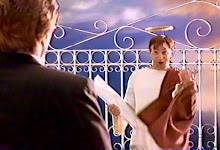.jpg)
.jpg)
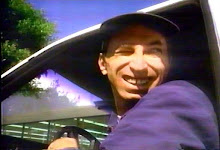.jpg)
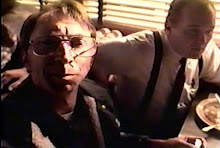.jpg)

.jpg)

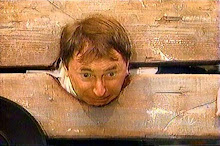.jpg)
.jpg)

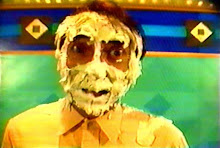.jpg)
.jpg)
No comments:
Post a Comment